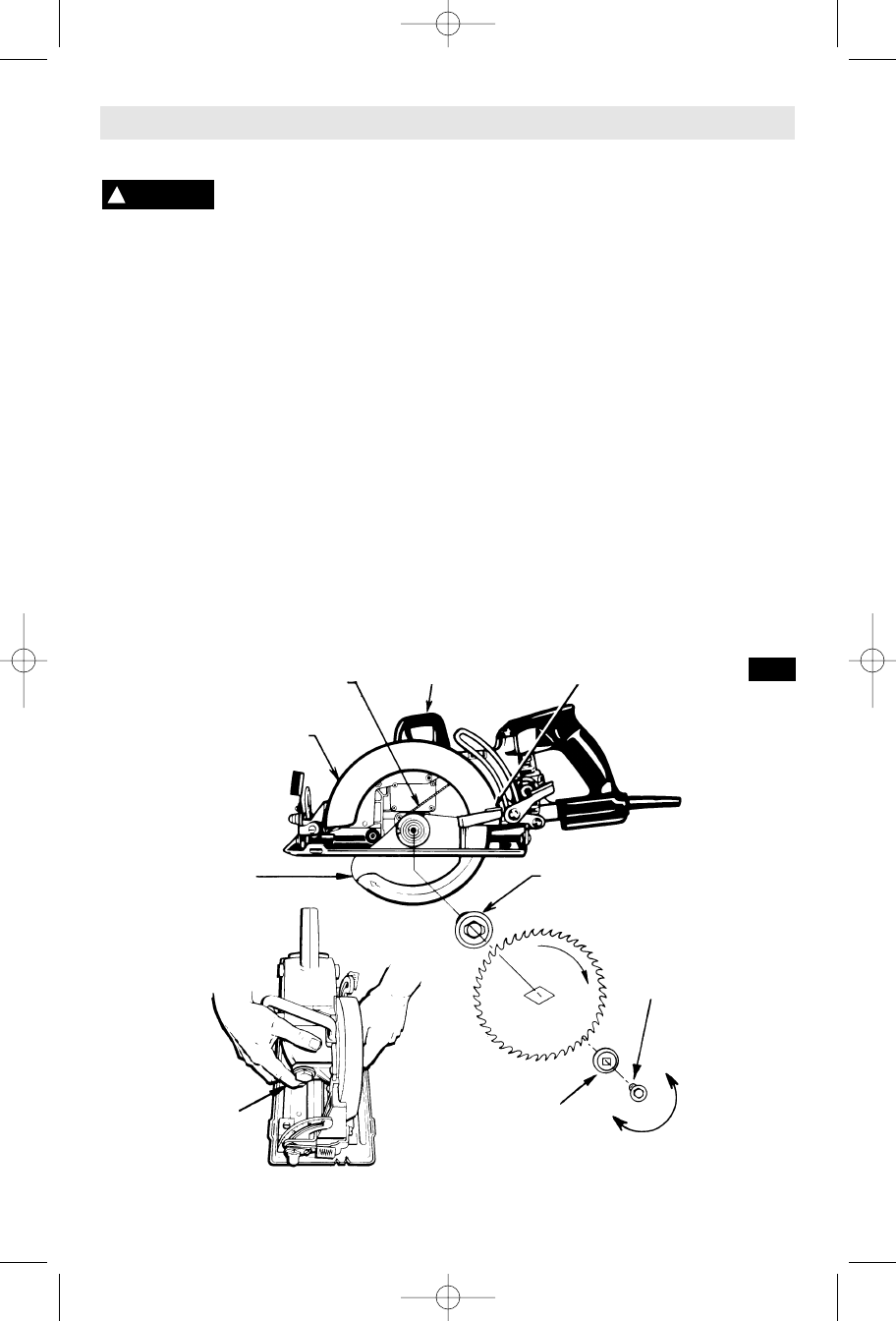
-8-
Assembly
ATTACHING THE BLADE
Disconnect the plug from
the power source before
making any assembly, adjustments or
changing accessories
. Such preventive
safety measures reduce the risk of starting
the tool accidentally.
1. Press the lock button and turn wrench until
lock button engages. Saw shaft is now locked.
Continue to depress button, turn wrench
clockwise and remove BLADE STUD and
OUTER WASHER (Fig. 2).
2. Retract the lower guard all the way up into
the upper guard. While retracting the lower
guard, check operation and condition of the
LOWER GUARD SPRING.
3. Make sure the saw teeth and arrow on the
blade point in the same direction as the arrow
on the lower guard.
4. Slide blade through slot in the foot and
mount it against the INNER WASHER on the
shaft. Be sure the large diameter of the INNER
and OUTER washers lay flush against the
blade.
5. Reinstall OUTER WASHER. First tighten
BLADE STUD finger tight, then TIGHTEN
BLADE STUD 1/8 TURN (45˚) WITH THE
WRENCH PROVIDED.
Do not use wrenches with longer handles,
since it may lead to over tightening of the
blade stud.
VARI-TORQUE CLUTCH
This clutching action is provided by the friction
of the OUTER WASHER against the BLADE
and permits the blade shaft to turn when the
blade encounters excessive resistance. When
the BLADE STUD is properly tightened (as
described in No. 5 of Attaching The Blade), the
blade will slip when it encounters excessive
resistance, thus reducing saw’s tendency to
KICKBACK.
One setting may not be sufficient for cutting all
materials. If excessive blade slippage occurs,
tighten the blade stud a fraction of a turn more
(less than 1/8 turn). OVERTIGHTENING THE
BLADE STUD NULLIFIES THE EFFECTIVE-
NESS OF THE CLUTCH.
!
WARNING
LOWER GUARD
LIFT LEVER
LOWER GUARD
SPRING
UPPER GUARD
LOWER
GUARD
LOCK
BUTTON
OUTER WASHER
Large Diameter
Faces Blade
Loosen
Tighten
BLADE
STUD
INNER WASHER
Large Diameter
Faces Blade
FIG. 2
AUXILIARY
HANDLE
SM 1619X01359 02-06 2/16/06 1:50 PM Page 8


















